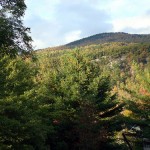Update: What A Billionaire Actually Bought In New Hampshire
Yesterday I forwarded along an interesting piece of info from Forbes about how billionaire John Malone is now the largest landowner in the US. That’s thanks to a million acre purchase covering parts of New Hampshire and Maine.
So I wanted to know, where is this land? And how much of it was actually in New Hampshire?
And I jumped down the rabbit hole.
Since Forbes reported that Malone bought the land from Boston-based private equity firm GMO Renewable Resources, it seemed logical to start there. And I hit a wall. Apparently, everyone at GMO who was qualified to tell me how much of the land was in New Hampshire, and its rough location, was out of the office for the week. But the receptionist would work on finding someone to talk with me.
Enter Tucker Hughes of Hughes Communications, in New York City. He called me, and I explained what I wanted to know.
A: We’re declining to comment.
Q: This was a big land purchase. It’s public record. You can’t even tell me, “Hey, it’s somewhere up north, around Pittsburg or Dixville Notch” or something? Or even if most of it was in New Hampshire or Maine?
A: No. We’re declining to comment.
Q: Ok. So is that just company policy, not to comment on any sort of transaction?
A: Yes.
Q: That’s about par for the course with private equity firms, right?
A: I’d say yes.
Q: So for my post, can you tell me a little bit about GMO?
A: Sure. It’s a $100 billion institutional money management firm.
Q: Do they only invest in land, or do they have a wider portfolio?
A: They invest in a variety of different things.
Q: Great. Thank you.
At this point, I was getting ready to hang up when he piped-up with:
A: I’d rather not be quoted on any of this.
Q: Wait…what? You don’t want to be quoted declining to comment or describing the company?
A: No.
Q: But you’re the PR guy! You know you’re on record when you talk to the media. Are you seriously asking me not to quote you declining to comment?
A: We’re just declining to comment.
Q: Seriously, what’s with the cloak-and-dagger? This is all pretty straight-forward.
A: It’s not cloak-and-dagger. We’re just declining to comment. Declining to comment is just declining to comment.
Q: I’m going to quote you on what you said.
A: Ok. Let me know if I can help you any more.
Q: (Laughing) I would, but I doubt you could go on the record declining to answer my questions.
A: (Laughing)…Thanks! Click.
Incidentally, everything Hughes told me is easily available on GMO’s website. So no state secrets lost on their end. And the New Hampshire land purchase was no secret at all. In fact, it was well-covered, especially in the North Country. The New Hampshire end of Malone’s Great New England Purchase was a small sliver of the total–23,000 acres at Phillips Brook in Dummer. (So for the record, the overwhelming majority of Malone’s new timberland was in Maine).
Barbara Tetreault reported on the New Hampshire deal in the Berlin Daily Sun last January,
“The land is currently owned by GMO Renewable Resources, a private forest investment company that purchased the land in 2004 from International Paper. The new buyer is BBC Land LLC, which lists Malone as its manager…John Casewell of BBC Land said the transaction is scheduled to be completed Feb. 1.
Casewell said BBC will continue to manage the entire property as a working forest and will allow public access for recreation. The long term wood procurement contracts that provide wood to Verso Paper’s mills in Jay and Bucksport, Maine will remain in place. GMO Renewable has an agreement with Granite Reliable Powr, allowing the developer to place 33 wind turbines along the ridgeline in Phillips Brook. Casewell said that agreement would transfer as well.”
Whether the land was attractive to Malone for its wind power potential, its working forest status, or for some other reason isn’t clear.
“Some people just like to own a lot of land.”
Jack Savage of New Hampshire’s Forest Society told me this particular purchase is part of an ongoing trend in the North Country, “We moved into an era where there was a different kind of owner owning land for different kinds of reasons.”
Savage noted that whereas paper companies bought timber to support their milling operations for 50 years or so, the new line of landowner who’s emerged is interested in return on investment. “And the question is,” Savage said, “what’s the investment timeline of this different kind of owner…that raises the real question of what’s that mean for the New Hampshire landscape?”
As the North Country’s paper industry continues to deteriorate, there are questions about whether timber owners will keep these forests working, open for recreation, or opt to develop them into 100-acre “kingdom lots.”
Of course, how to put both North Country residents and its forests back to work as traditional industries falter is an open question.

